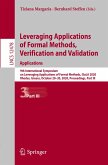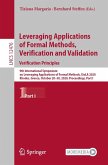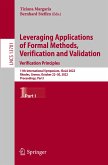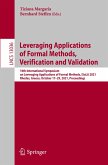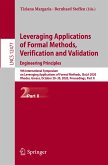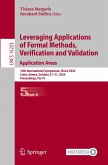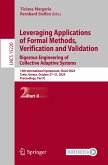The four-volume set LNCS 12476 - 12479 constitutes the refereed proceedings of the 9th International Symposium on Leveraging Applications of Formal Methods, ISoLA 2020, which was planned to take place during October 20-30, 2020, on Rhodes, Greece. The event itself was postponed to 2021 due to the COVID-19 pandemic.
The papers presented were carefully reviewed and selected for inclusion in the proceedings.
Each volume focusses on an individual topic with topical section headings within the volume:
Part I, Verification Principles:
Modularity and (De-)Composition in Verification; X-by-Construction: Correctness meets Probability; 30 Years of Statistical Model Checking; Verification and Validation of Concurrent and Distributed Systems.
Part II, Engineering Principles:
Automating Software Re-Engineering; Rigorous Engineering of Collective Adaptive Systems.
Part III, Applications:
Reliable Smart Contracts:State-of-the-art, Applications, Challenges and Future Directions; Automated Verification of Embedded Control Software; Formal methods for DIStributed COmputing in future RAILway systems.
Part IV, Tools and Trends:
From Verification to Explanation; Engineering of Digital Twins for Cyber-Physical Systems; Software Verification Tools.
The papers presented were carefully reviewed and selected for inclusion in the proceedings.
Each volume focusses on an individual topic with topical section headings within the volume:
Part I, Verification Principles:
Modularity and (De-)Composition in Verification; X-by-Construction: Correctness meets Probability; 30 Years of Statistical Model Checking; Verification and Validation of Concurrent and Distributed Systems.
Part II, Engineering Principles:
Automating Software Re-Engineering; Rigorous Engineering of Collective Adaptive Systems.
Part III, Applications:
Reliable Smart Contracts:State-of-the-art, Applications, Challenges and Future Directions; Automated Verification of Embedded Control Software; Formal methods for DIStributed COmputing in future RAILway systems.
Part IV, Tools and Trends:
From Verification to Explanation; Engineering of Digital Twins for Cyber-Physical Systems; Software Verification Tools.


